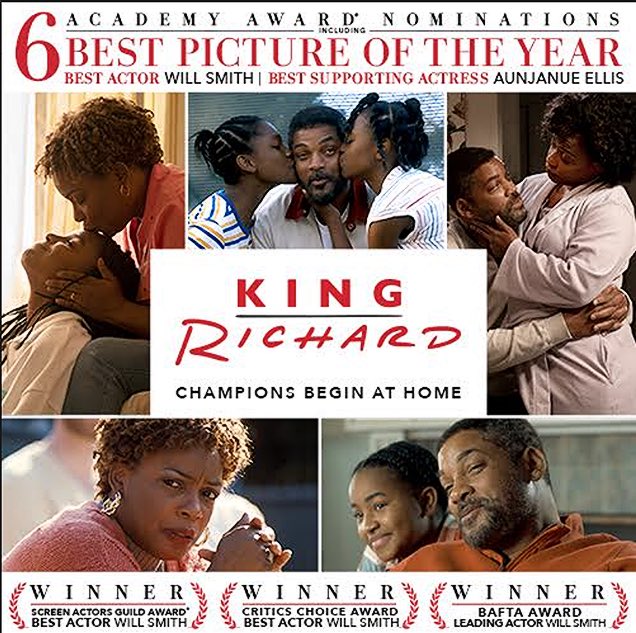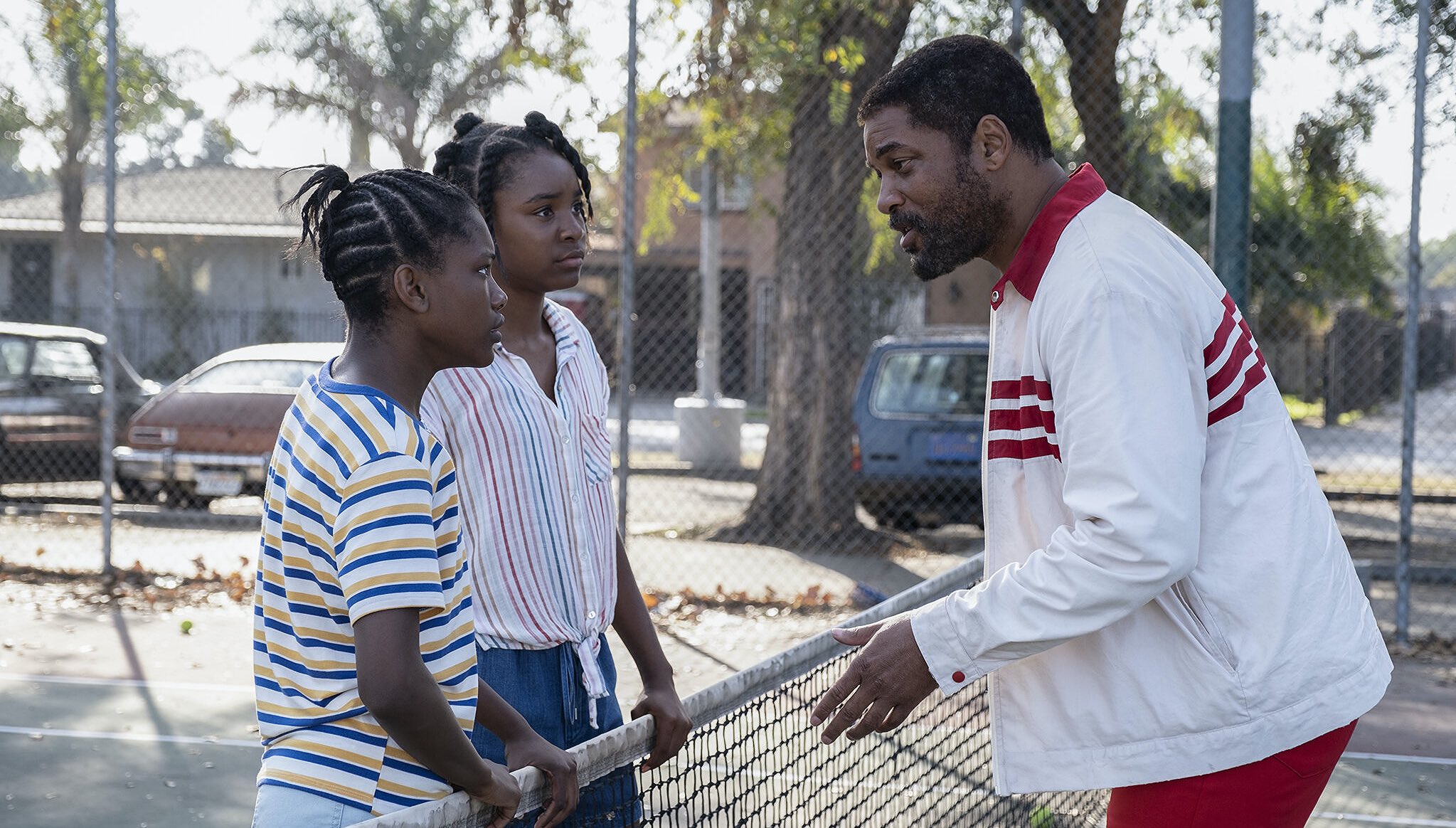Click here to jump past HE Sink-In
If you wanted to keep it simple, you would call King Richard a first-rate sports drama. Which it is.
If you wanted to be a little more specific, you could call it a disciplined, highly motivated sports drama by way of a family relationship film. Which it is.
And if you wanted to really get down in the weeds, you could call it an inspirational, true-life portrait of a willful, obstinate, never-say-die sports dad (Williams) who insisted that his daughters work their asses off it order to become world-class tennis superstars. Which they did.
What emerges are three films in one. A tennis-boot-camp-run-by-a-tough-dad family film. A strong-mom family film, due to the knockout performance by Aunjanue Ellis. And among the most realistic, down-in-the-trenches competitive tennis films ever made.
King Richard is not a story of good fortune changing the lives of the main protagonist(s) by way of luck or God’s grace. It’s about work and focus and devotion and absolutely no relaxing or kicking back. It’s about “if you fail to plan, you plan to fail.” It’s about “only the strong and gifted who get up early and go to bed at a reasonable hour succeed.”

King Richard is arguably the most spiritually thrilling family film of the 21st Century. Partly because it avoids the usual usual — not so much emotions and endearing interludes and God’s good fortune, but family teamwork and discipline. It’s an adult family film without (or certainly not limited to) the usual family film bromides.
Will Smith’s performance has reminded a friend of Paul Newman’s character in The Verdict — “the same kind of slow burn in which someone whom everyone overlooks or under-values is redeemed at last. This is the best way I can see him. Characters who aren’t listened to and then finally are vindicated. That’s what makes his character compelling. Underneath it all he’s fighting the good fight.”
The single-minded Richard is partly an inspirational Malcolm X figure, partly F. Lee Ermey in Full Metal Jacket, partly an SOB with a heart of gold.
And yet much of King Richard is about other tennis coaches, managers and marketers (Tony Goldwyn‘s Paul Cohen, Jon Bernthal‘s Rick Macci, Kevin Dunn‘s Vic Braden, Dylan McDermott‘s Will Hodges) expressing annoyance with Richard’s egoism and stubbornness and general refusal to accomodate other viewpoints.
Richard may be irascible, but he’s fighting for his daughters — fighting to build their skill, fighting for their success, and also for their integrity and their roundedness as human beings. And through it all, he’s fighting to remake what is basically a racist American system of sports image-making.
If Will Smith didn’t wear Richard’s beard and manage to physically resemble him in other ways, and if he didn’t inhabit the allegedly gnarly and thorn-bushy aspects of Richard’s personality, King Richard wouldn’t be as much of a film.
Credit largely goes to Green, who just buckles down, cuts out the superfluous b.s. and tells this hard-fought success story with the drill-sergeant discipline of Williams himself.
Story-wise, King Richard is clean and smooth and radiates authority, and credit for that aspect cis owned by screenwriter Zach Baylin. The result is a genre-defying “family film” aimed at movie lovers who can appreciate first-rate craft and concise storytelling.
So it’s not just a Will Smith film (although it is) — it’s a Reinaldo Marcus Green film, an Aunjanue Ellis film, a proud Black family film, a no-slacking-off film, a “show me the money” film, a Saniyya Sidney and Demi Singleton film, a Tony Goldywn and Jon Bernthal and Dylan McDermott film. In short, a team effort about the very tough discipline of filmmaking as well as tennis.
It’s the team effort that counts. King Richard is not, finally, a movie about obstinacy, but about faith and belief and persistence.

